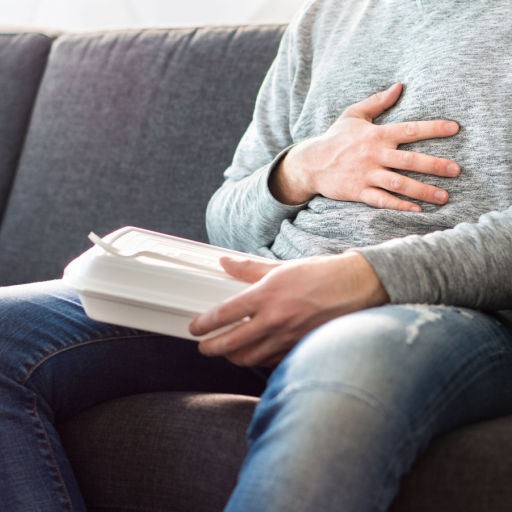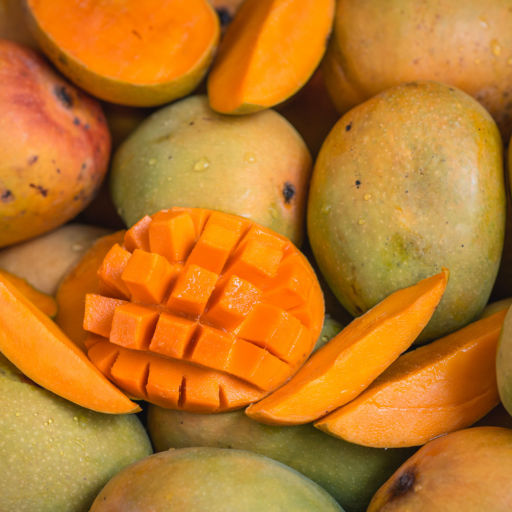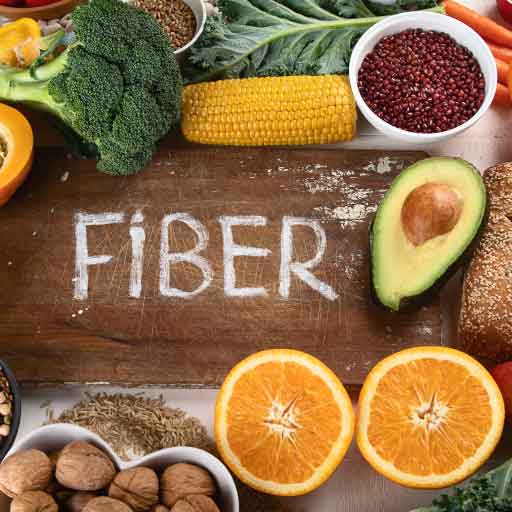Picture this: you’re eagerly indulging in a scrumptious meal, but little do you know that some unwelcome guests have joined the party. Foodborne diseases are illnesses caused by consuming contaminated food.
इनके बारे में जानें:
- What are foodborne diseases?
- Symptoms of foodborne diseases
- Which foods are commonly known to cause foodborne diseases?
- Prevention tips for foodborne diseases
- Summer food safety tips to prevent foodborne infection
What are foodborne diseases?
Foodborne diseases, also known as foodborne illnesses or food poisoning, refer to infections caused by consuming contaminated food or beverages. Several pathogens, including bacteria, viruses, parasites, or toxins, contaminate the food during production, handling, or storage. Raw meats, poultry, seafood, and eggs are notorious carriers of bacteria like Salmonella or E. coli. Fruits, vegetables, and unpasteurized dairy products can also harbor harmful pathogens.
And let’s not forget the importance of hygiene – unwashed hands can transfer unwanted germs to our food. So now you know what causes food-borne diseases.
Symptoms of foodborne diseases
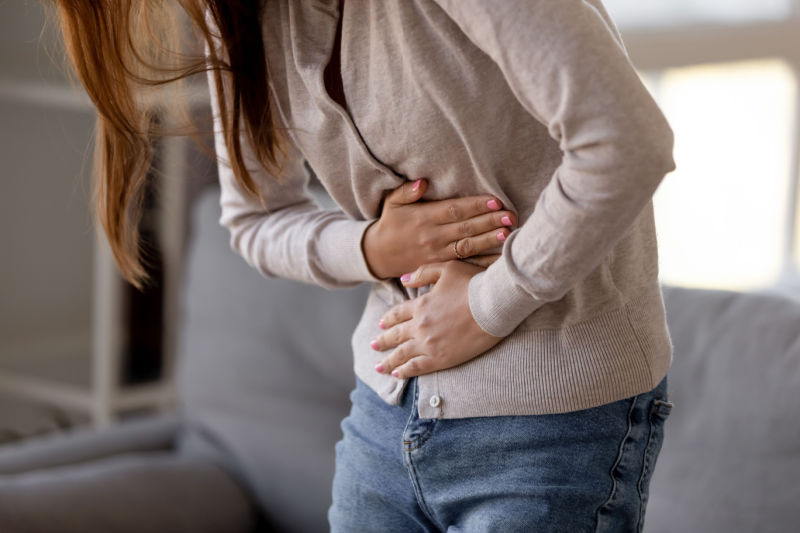
It’s important to be aware of the symptoms of foodborne illnesses to prevent them from further causing damage. Let’s dive into the symptoms of foodborne diseases below:
- Sometimes, the foodborne infection can spread to other parts of your body. Watch out for symptoms like headaches and muscle aches.
- Foodborne diseases can also cause diarrhea and vomiting, often leading to weakness, dehydration, and loss of appetite. Signs include fatigue, dizziness, and urine problems.
- Foodborne illnesses often lead to gastrointestinal symptoms, resulting in nausea, vomiting, diarrhea, and stomach cramps.
- An indication of a foodborne illness is a sudden spike in body temperature. Fevers are not uncommon when our immune system kicks into high gear to fight off those unwelcome invaders.
- A persistent fever can be a sign of underlying severe foodborne illnesses. You should visit a doctor if your fever remains high and is accompanied by severe symptoms such as bloody stool, vomiting, and abdominal pain. These illnesses can be signs of infections by bacteria like Salmonella, Campylobacter, or E. Coli.
- Certain foodborne diseases can also affect your nervous system, leading to headaches, dizziness, and even paralysis. Clostridium botulinum is one such bacteria that requires immediate medical attention.
Which foods are commonly known to cause foodborne diseases?
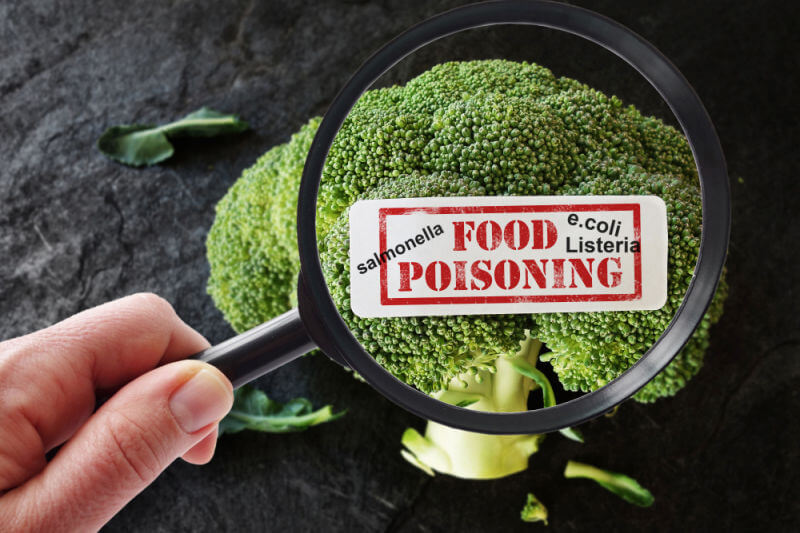
Take a look at the following foods which are more likely to cause foodborne infections:
- Any raw food from animals, i.e., raw eggs, undercooked meat and seafood, and unpasteurized dairy products, can get easily contaminated.
- Nowadays, manure fertilizes the soil for growing fruits and veggies. As a result, these fruits and veggies can get contaminated with foodborne bacteria and viruses.
- Raw sprouts can get contaminated if the sprouting environment is suitable for microbe growth.
Prevention tips for foodborne diseases
Foodborne diseases may try to crash our culinary adventures, but fear not! Our simple yet effective prevention tips will help your body in the prevention of food poisoning:
- Proper handwashing is a superhero in the fight against foodborne diseases. Ensure you wash your hands thoroughly with soap or sanitize them before touching food, using the restroom, touching pets, or handling raw meats.
- Cooking food to the right temperature is a powerful weapon against foodborne pathogens. Ensure that meats, poultry, and seafood are thoroughly cooked.
- Leftovers from summer feasts can be delicious, but remember to handle them with care. Promptly refrigerate leftovers within two hours (or within one hour if the temperature exceeds 90°F/32°C). Label them with the date to keep track of freshness.
- Keep raw and uncovered food away from ready-to-eat foods. Keep them in a cool, dry, and clean place. Store them in your refrigerator to keep bacteria away. Eating raw food can make you more susceptible to foodborne illnesses as bacteria can contact them more easily.
- Avoid eating half-cooked eggs and meat, as they can contain Salmonella. This dangerous bacteria can cause food poisoning. According to WHO, Salmonella is one of the leading causes of diarrhea.
These essential habits can go a long way in preventing food-borne infections and diseases.
Summer food safety tips to prevent foodborne infection
Regarding summer food safety tips, it’s essential to remember that prevention is the key to a healthy and enjoyable culinary experience. Keeping our foods properly chilled, preventing cross-contamination, and handling leftovers can minimize the risk of foodborne infections during this sunny season.
Stay tuned to the Activ Living Community. Keep up to date with the latest health tips and trends through expert videos, podcasts, articles, and much more in nutrition, fitness, mindfulness, and lifestyle conditions like Asthma, Blood Pressure, Cholesterol, and Diabetes.
You may also be interested in the following blogs:
- What Are Foodborne Illnesses And What Are The Foods That Cause Food Poisoning?
- मानसून के मौसम में आपको कौन से खाद्य पदार्थों से बचना चाहिए?
Popular Searches
How to lower blood pressure | Fruits good for liver | Unhealthy foods | रागी के लाभ | बेसल मेटाबोलिक रेट | हाई ब्लड प्रेशर के लिए एक्यूप्रेशर पॉइंट्स | Ayurvedic medicine for blood pressure | How to control cholesterol at home | Homeopathy for Asthma | Biological Age | Home remedies for TB | Natural beta blockers | Negative effects of internet | Types of walking | ब्लड प्रेशर कैलकुलेटर | ब्लड शुगर कैलकुलेटर | BMI कैलकुलेटर





 1800-270-7000
1800-270-7000


